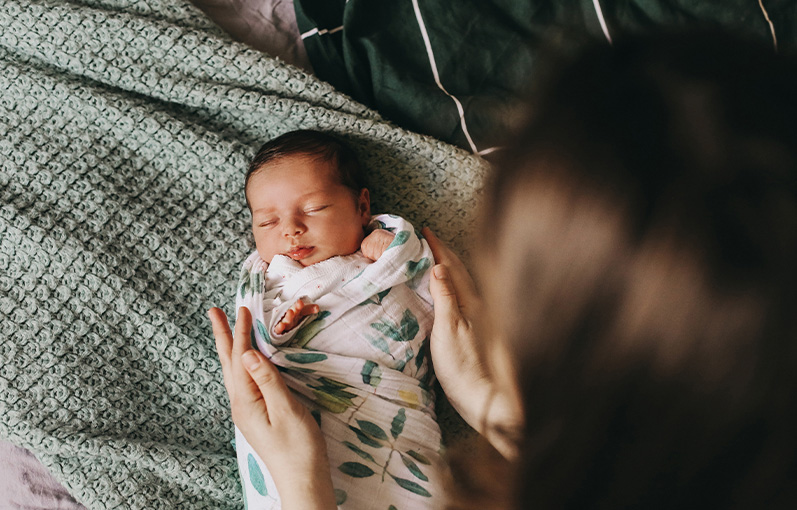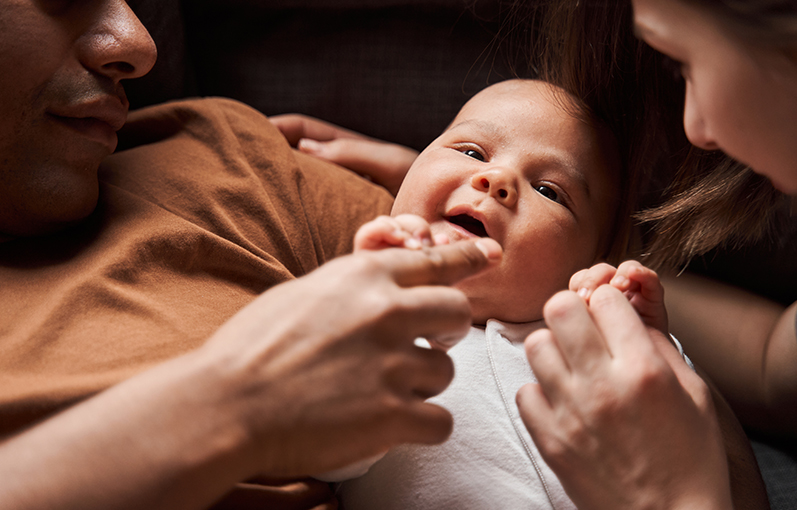Exercise
Ideally, you should aim for 20 to 30 minutes of moderate physical activity every day. This may just mean parking the car further from work or making time with your partner or a friend to go for a walk each morning or evening. Many women have very sedentary jobs and work long hours in pregnancy so it is important to make time to stay fit. Find whatever activity you enjoy most. Build some activity into your working day with stairs, a walk to lunch, or some midday exercise.
There are also many exercise classes and fitness activities aimed specifically at pregnant women and it is well worth making time to attend a regular class.
If you exercised regularly before pregnancy you can safely continue throughout your pregnancy. You may need to reduce both the intensity and duration of your exercise programme. In the first trimester, fatigue may make regular exercise difficult and later on a change in your body shape or an increase in your breast size may also make some sorts of exercise and sport uncomfortable.
There are very few sports or exercises that are dangerous during pregnancy but you will find that your balance changes making accidents more common and your “stretchier” ligaments will also be more prone to injury. Do talk to us if you are concerned about your exercise programme or any particular sporting activity during your pregnancy.
You can read some useful guidelines on exercise in pregnancy here. Our Helpful Information page also has the contact details for a range of pregnancy fitness activities and classes.
Diet and weight gain in pregnancy
Your pregnancy will progress well with only very small increases in your intake of protein, carbohydrate, fat, vitamins and minerals. The digestive system in pregnant women changes and becomes more efficient at absorbing certain nutrients. With only a few exceptions, most of the additional nutrient needs of pregnancy can be met by eating a well-balanced and varied diet. ‘Eating for two’ certainly doesn’t mean you should eat twice as much food. Aim for a healthy balanced diet during your pregnancy. You can read the Ministry of Health guide to healthy eating in pregnancy here.
Pregnancy may be good time for both you and your partner to do more “home cooking” and cut back on the consumption of takeaways and junk food that full time work often necessitates.
Many women worry that they are gaining too much or too little weight during their pregnancy. Weight gain will vary and most healthy women will gain 11 to 16 Kg over their pregnancy (about 0.4 Kg per week during the second half of their pregnancy). However, if you are overweight you should try to avoid excessive weight gain in pregnancy and we may advise you to limit your weight gain. If you are significantly overweight (have a BMI of over 30) you should limit your weight gain to 5 to 9 Kg over your pregnancy. Excessive weight gain in pregnancy is associated with having a large baby, being delivered by caesarean section, high blood pressure and developing diabetes in pregnancy (gestational diabetes). You can read a useful short guide to weight gain in pregnancy from the Ministry of Health here.
Smoking
The best time to stop smoking is before you become pregnant because of the well-established risks to your developing baby. Smoking has been linked to poor growth in a developing baby and stillbirth. Many smokers find pregnancy the easiest time to give up. There are smoking cessation programmes based at National Women’s that are aimed specifically at supporting pregnant women trying to quit. We can arrange a referral for you. If your partner is a smoker, your pregnancy is a great time for them to stop smoking. The risk of cot death and childhood asthma is considerably greater if one or both parents smoke.
Sleep
After 28 weeks of pregnancy you should go to sleep on your side. When you lie on your back the womb and baby put pressure on the large blood vessels in you abdomen potentially reducing blood flow to your womb. Going to sleep on your side in the last trimester of pregnancy may reduce your risk of stillbirth by up to half. Don’t worry if you wake up on your back-most women change position during sleep. Start sleeping on your side and settle back to sleep on your side if you wake up. You can read more advice from the Ministry of Health here.


